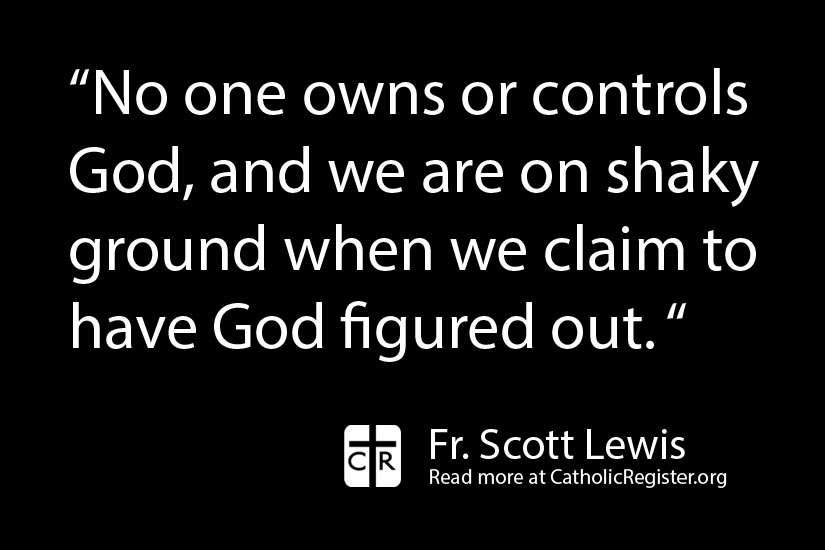God speaks of a time when peoples from every nation will be gathered together and instructed in the ways of the Lord. God intended to send survivors of the exile to many nations to proclaim the word, envisioning a time when all will stream towards the Holy Mountain to enter into God’s presence. Some will even be accepted as priests and Levites.
The New Testament did not invent a universal outlook — it was a further development of the vision of Isaiah. The simple fact is that God is far more generous, expansive and inclusive than we can imagine (or for some people, fear!). Right from the beginning of time, God’s plan has embraced all of humanity. We might ask why Christianity has always been plagued by theological, ethnic and class distinctions that have often resulted in terrible injustice and bloodshed. Could it be that we often substitute our own prejudices, hatreds and fears for the will and compassion of God? We rebuild the barriers and distinctions that humans erect against one another almost faster than God dismantles them. As we face a world that is increasingly polarized and fragmented, our response could be to continue the work of Isaiah and the New Testament. The emphasis would be on welcoming and including, as well as persuading by kindness and mercy. Tribal theologies are deadly and have no place in the modern world.
Life can bring us some very hard knocks. We can react with resentment, self-pity, victimization or rebellion, and this is a road well-travelled. On the other hand, we can treat everything that comes our way as an opportunity for growth. Hebrews speaks of discipline — this is not some sort of punishment but the sort of training that an athlete, musician or scholar must undergo in order to be successful. For the follower of Jesus, this means meeting every challenging situation or person with dignity, grace and courage, and responding with patience and compassion. When we do so, we are the victor. We are never victims without our consent.
There are many expressions of religious faith, but there is only one that Jesus recommends to His followers: entering through the narrow door. This is another way of saying that one’s faith must be put into practice and taken into the heart. In answer to the query about how many would be saved, He gave examples of those who will claim familiarity with Jesus: we ate and drank with you; you taught in our towns and streets. This means little, for it is the age-old use of religion as an identity marker — sort of like belonging to the right club. Mouthing the correct prayers and theology will not gain us entrance into the kingdom of God if it is not accompanied by the serious application of the spiritual principles taught by Jesus throughout His ministry. Again, mercy, compassion, forgiveness, non-violence and a quest for justice are the essence of these teachings.
In the story, Jesus responds to their claims of familiarity by denying that He ever knew them. This is the core of the problem: faith in Jesus means a personal relationship, and this relationship is expressed by putting on the mind and heart of Christ. Mere religious observance or lip service will not do. Jesus ends the story with a warning against complacency and a sense of religious entitlement.
Many who think that they “have it made” spiritually in fact do not, while many outsiders from near and far will be welcome at the table of the Lord. In fact, God turns our own expectations upside down: there are some who are considered last who will be first, and some who are now first who will be last.
No one owns or controls God, and we are on shaky ground when we claim to have God figured out.


